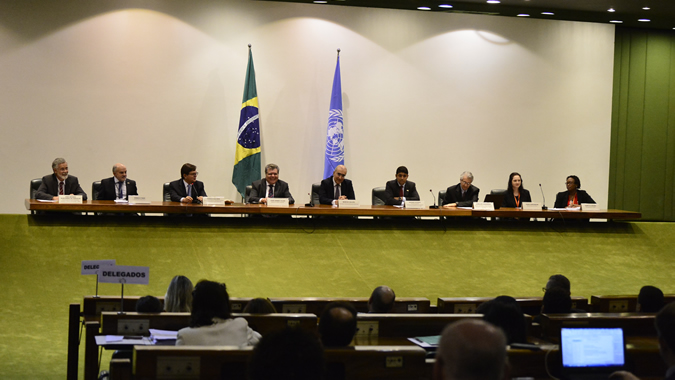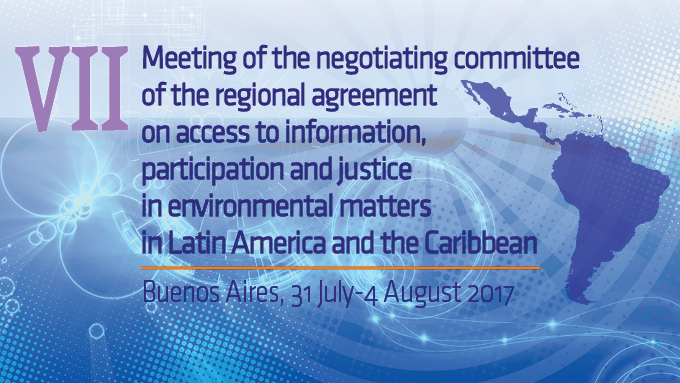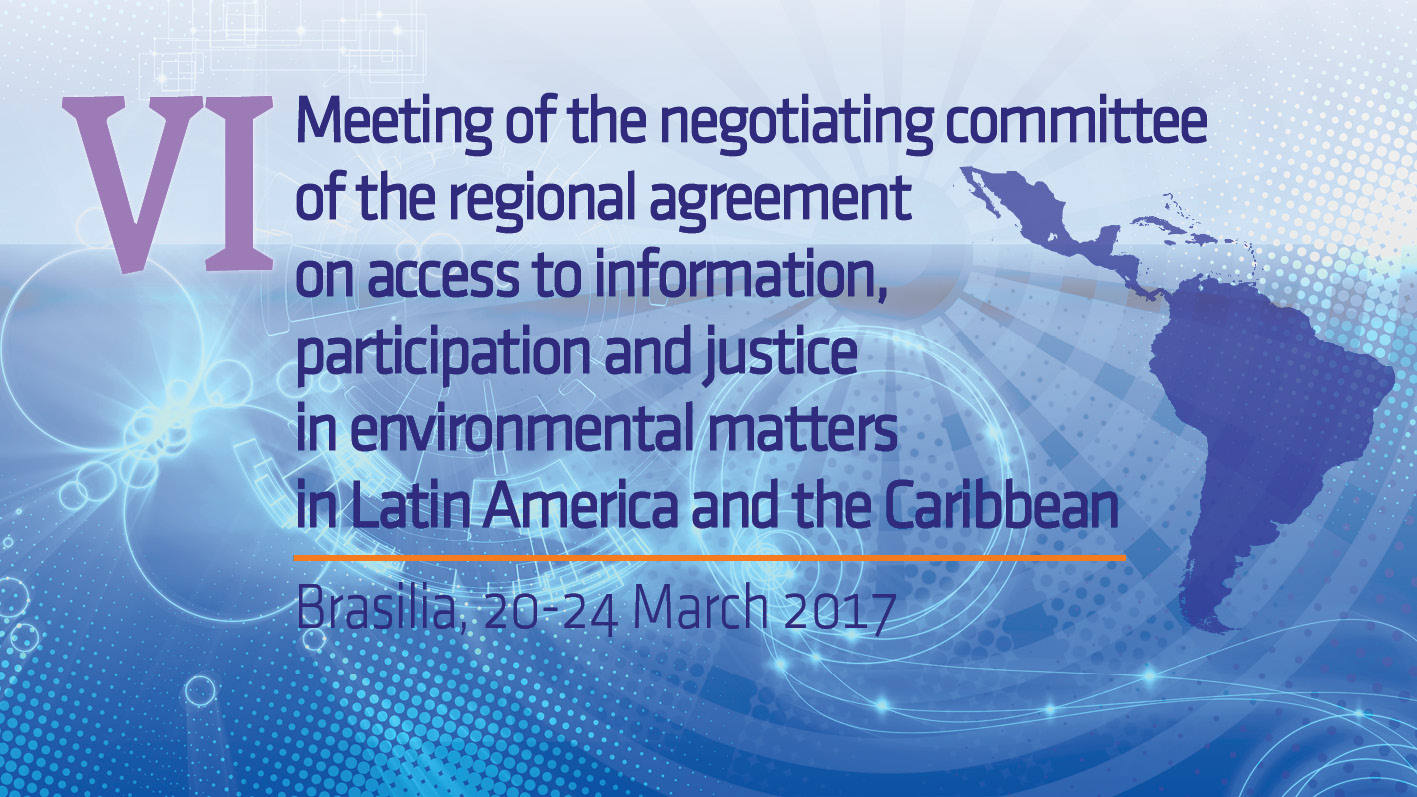Countries Resume Negotiations in Brazil on Unprecedented Regional Agreement on Environmental Matters
Work area(s)
A legal instrument is expected on rights of access to environmental information, participation and justice for 2017.

The countries of Latin America and the Caribbean resumed negotiations on Monday, March 20 in Brasilia, the capital of Brazil, toward reaching a regional agreement this year on rights of access to environmental information, participation and justice, enshrined in Principle 10 of the Rio Declaration on Environment and Development (Rio+20). The agreement would be a second-generation legal instrument and the first of its kind on the continent.
Delegates from the 23 nations adhering to this regional initiative began the Sixth Meeting of the Negotiating Committee of the Regional Agreement on Access to Information, Public Participation and Access to Justice in Environmental Matters in Latin America and the Caribbean (Principle 10), organized by ECLAC and the government of Brazil and to be held through Friday, March 24 at the seat of Brazil’s Ministry of Foreign Affairs (Itamaraty Palace).
The meeting was inaugurated by Marcos Galvão, Brazil’s Secretary General of Foreign Affairs; José Sarney Filho, Minister of the Environment; Wagner Rosário, Executive Secretary of the Ministry of Transparency, Oversight and Comptroller-General; and Alicia Bárcena, Executive Secretary of ECLAC, the organization holding the Technical Secretariat of the process.
Also participating in the opening session were Antonio Herman Benjamin, Justice on Brazil’s Superior Court of Justice; Joseluis Samaniego, Director of ECLAC’s Sustainable Development and Human Settlements Division; Rômulo Paes de Sousa, Director of the Global Center for Sustainable Development (RIO+Center); and Karetta Crooks and Joara Marchezini, representatives of the general public.
In his opening remarks, Marcos Galvão indicated that Rio+20 recognized the need for balance between the economic, social and environmental dimensions of sustainable development, an idea that infused all the mandates arising from that conference and also present in the discussion on Principle 10. “And it is precisely to strengthen the environmental dimension and place it on balance with the others that we today seek a regional instrument capable of supporting the application of Principle 10 in our region,” he stated.
Minister José Sarney Filho indicated that Brazilian law is already ambitious with regard to access to information, “but there will always be ways to make it more effective,” he specified. “Access, participation and transparency are fundamental; they hold strategic importance for the environment. This is why it is crucial to guarantee that society is aware of these issues,” he said.
In a video greeting sent to attendees, Alicia Bárcena underscored the importance of this agreement, “the only convention to come out of Rio+20 that links the environment to human rights and rights of access to information, participation and justice in environmental matters.”
“This agreement being negotiated in our region, which the countries have called on us to support, could not be more timely, and I might add, visionary. The rights of access enshrined in this principle are at the heart of the 2030 Agenda in that they permeate and are manifested in all the Sustainable Development Goals. The SDGs expressly link human well-being to environmental quality and peace,” Bárcena said.
She likewise called upon the region to be the protagonist in its own history, to improve environmental decision-making processes and advance toward becoming more just, pacific and sustainable societies.
Justice Antonio Herman Benjamin indicated that environmental rule of law is an intangible asset that is absolutely fundamental for people’s quality of life and that of future generations, while Rômulo Paes stated that Principle 10 is essential for meeting the objectives of Rio+20. This is not limited to SDG 16, which promotes peaceful and inclusive societies for sustainable development, but instead is essential to all the SDGs in order to achieve peace, governability and environmental protection.
Representatives of the public Karetta Crooks and Joara Marchezini asserted that public collaboration ensures timely participation, responsibility and the special consideration of specific groups that are directly affected, such as indigenous peoples and the most vulnerable populations. “Principle 10 was born here in Brazil and reaffirmed in Rio+20, the beginning of the process. It is now coming home to be structured and become more robust and stronger. We must make the difference, diminish socio-environmental conflicts and respond to the region’s needs in order to solidify rights and support sustainable development in a participatory and democratic fashion. Our goal is to create an agreement that guarantees environmental democracy,” they reaffirmed.
During the first day of the meeting, there was also a special session on Rights of Access to Environmental Justice, with participation by authorities, senior judges and environmental experts from Argentina, Brazil, the Caribbean, Costa Rica, Panama and other countries. Another event was the online launch of the Observatory on Principle 10 in Latin America and the Caribbean, a web tool for tracking the laws, policies, treaties and jurisprudence that guarantee that people’s rights to information, participation and justice in environmental matters are fully applied.
More information:
Related event
Subregional headquarter(s) and office(s)
Country(ies)
- Latin America and the Caribbean
Contact
Public Information Unit
- prensa@cepal.org
- (56 2) 2210 2040

